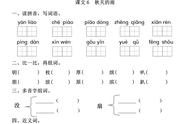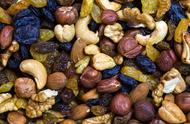
这一节,我们学习第四组单词:

【英语】eight[eɪt]adj., n., pron. 八,八个
Most people worked an eight-hour day twenty years ago.
二十年前大多数人*是八小时工作日。
Eight are on duty.八个人在值班。
Eight plus seven equals fifteen.八加七等于十五。
It is eight now.现在八点钟了。
记家长朋友记重点:
1、这里的ei读[eɪ],对应英语元音字母a的字母音,汉语拼音的ei。
2、英语的-ght基本上都读[t],也就是这里的gh不发音。对应德语的-cht。
请家长朋友大概了解词源:
From Middle English eighte, aught, eahte, ahte, from Old English eahta, from Proto-West Germanic *ahtō, from Proto-Germanic *ahtōu, from Proto-Indo-European *oḱtṓw.
Cognate with Scots aucht (“eight”), West Frisian acht (“eight”), Dutch acht (“eight”), Low German acht (“eight”), German acht (“eight”), Norwegian åtte (“eight”), Swedish åtta (“eight”), Icelandic átta (“eight”), Latin octo (“eight”), Ancient Greek ὀκτώ (oktṓ), Irish ocht (“eight”).
我们可以大概了解:英语的eight,德语的acht,拉丁语的octo,古希腊语的ὀκτώ (oktṓ)最终都源自PIE(原始印欧语)*oḱtṓw。
请家长朋友记重点:原始日耳曼语把PIE的*k变化为*h。
【德语】acht(国际音标[axt]) adj. 8。八。eight, octa
认识英语单词October(十月)的小朋友,应该了解:其中的octo是拉丁语表“8”的单词。
【英语】October[ɔkˈtəubə]n.十月
the October Revolution(苏联)十月革命
拆解:octo ber。
词源:From Middle English, borrowed from Old French octobre, from Latin octōber (“eighth month”), from Latin octō (“eight”), from Proto-Indo-European *oḱtṓw (“twice four”); Latin -ber, from -bris, an adjectival suffix; October was the eighth month in the Roman calendar.
只要您愿意,就可以顺便熟悉拉丁语的相应单词。
【拉丁语】October(古典式发音/okˈtoː.ber/,教会式发音/okˈto.ber/):October, Octobris n. m. October; (8th month before Caesar, 10 th after); abb. Oct.;
拆解:octo ber。
在凯撒之前,October表“八月”,凯撒之后表“十月”。
【英语】octopus [ˈɔktəpəs]n. (pl. octopuses, -pi[-pai])1. 【动】章鱼; 蛸; [Octopus ]章鱼属2. 周围爪牙众多的人[团体]
拆解:octo(表“8”) pus(表“脚”)。

词源:From Latin octōpūs, from Ancient Greek ὀκτώπους (oktṓpous), from ὀκτώ (oktṓ, “eight”,国际音标/ok.tɔ̌ː(古)/ → /okˈto(中古)/ → /okˈto(现代)/) πούς (poús, “foot”,国际音标/pǔːs(古)/ → /pus(中古)/ → /pus/(现代)).
了解拉丁语octo表“8”,也就等于实际上掌握古希腊语的ὀκτώ (oktṓ),区别在使用的字母不同。
拉丁语使用拉丁语字母,是一种希腊字母的变体。而希腊语则使用希腊字母。
请家长朋友牢记:古典拉丁语中ū是长元音,读[u:],对应古希腊语的ου,法语的ou,汉语拼音的u。
忽略长短元音,古希腊语的υ(读[y]),对应古典拉丁语的y,法语的u,德语和汉语拼音的ü。
也就是说,古典拉丁语用pūs改写古希腊语的πούς (poús)。
最好能了解:古典拉丁语用ū改写希腊语ου(读[u:])。
认识英语单词music(音乐)的小朋友可以顺便了解:它源自拉丁语的mūsica,源自古希腊语μουσική (mousikḗ)。
同样是用长元音ū改写ου。
请家长朋友牢记:英语的eight对应拉丁语和希腊语的oct-。
【英语】octagon[ 'ɑktəgɑn /'ɒktəgən]n. 八边形, 八角堂, 八角形
拆解:octa(表“8”) gon(表“角”)。
【英语】octane[ˈɔktein]n.【化】辛烷(含有8个碳原子)
technical octane工业异辛烷
拆解:oct ane(表“~烷”)。
==========================
【英语】nine [naɪn]num.九; 九个人[物]; 第九(章, 页, 段, 卷等)
nine of them他们中间的九个(人)
Chapter Nine第九章
Nine plus nine equals eighteen.9加9等于18。
重点记忆-ine读[aɪn],也就是元音字母i读其字母音[aɪ]。请顺便熟悉fine(好的),pine(松树),line(线),shine(照耀)。
词源:From Middle English nyne, nine, from Old English nigon, from Proto-West Germanic *neun, from Proto-Germanic *newun, from Proto-Indo-European *h₁néwn̥.
请家长朋友牢记:英语的nine对应拉丁语的novem,希腊语的non-。
【英语】November [nəʊˈvembə(r)]n. 十一月
拆解:novem ber。
【拉丁语】November(古典式发音/noˈu̯em.ber/,教会式发音/noˈvem.ber/):November, Novembris n. m. November; (9th month before Caesar, 11th after); abb. Nov.;
【英语】nonagon[ˈnɔnəɡən]n. 九边形, 九角形
拆解:nona(表“9”) gon(表“角”)。
【英语】nonane[ˈnɔnein]n. 壬烷危险化学品。易燃,容器遇火可爆炸。高浓度暴露会眩晕、头晕、昏死;长时间接触会剌激眼睛,造成皮肤干裂。
拆解:non ane。
==========================
【英语】ten[ten]n. 十, 十个; 十美元纸币
请家长朋友牢记:英语单词ten(十),pen(钢笔),men(man的复数),hen(母鸡)本身就是音标,也就是说,这些单词中的en都读[en],对应英语辅音字母n的字母音。
词源:From Middle English ten, tene, from Old English tīen, from Proto-West Germanic *tehun, from Proto-Germanic *tehun, from Proto-Indo-European *déḱm̥.
Cognate with Scots ten, tene (“ten”), West Frisian tsien (“ten”), Saterland Frisian tjoon (“ten”), North Frisian tiin (“ten”), Dutch tien (“ten”), German zehn (“ten”), Norwegian ti (“ten”), Swedish tio (“ten”).
Non-Germanic cognates include Albanian dhjetë, Old Armenian տասն (tasn), Lithuanian dešimt, Old Church Slavonic десѧть (desętĭ), Old Breton dec, Old Irish deich, Ancient Greek δέκα (déka), Sanskrit दश (dásá), Old Persian (*d-θ /daθa/), Latin decem, Tocharian A śäk.
前面,我们介绍了:英语的tw-对应德语的zw-。也就是英语中日耳曼语源的t对应德语日耳曼语源单词中的z(读汉语拼音的c,在元音后写成ss)。
认识英语的two(二),记忆德语的zwei(二)非常容易。
到这里,认识英语的ten(十),再记忆德语的zehn也非常简单。
【德语】zehn(国际音标/t͡seːn/) adj.(num) 十。10 ten
注:德语的eh读[e:],对应古典拉丁语的长元音ē,接近古希腊语的η,汉语拼音的ê。
请家长朋友牢记:英语的ten对应拉丁语的dec-,希腊语的dek-。
【英语】decade[ˈdekeɪd]n. 十年, 十年期间
拆解:dec ade(名词后缀)。
【英语】decimeter['desɪ‚miːtə]n. 分米
拆解:deci(表“十分之一”) meter(表“米“)。
【英语】December[dɪ'sembə]n. 十二月
拆解:decem ber。
【英语】decane [ˈdekein]n. 【化】癸烷
拆解:dec(表“十”) ane(表“~烷”)。
【英语】dekagram [ˈdekəˌɡræm]n. 十克
拆解:deka gram。
==========================
【英语】how[haʊ]adv. 如何, 多少, 怎样
英语中的ow通常有2种读音,一种是读[aʊ],一种读[əʊ]。
建议把how和now(现在),cow(母牛),crowd(人群),brow(眉毛),flower(花),tower(塔),power(力量)放在一起比较记忆。这些单词中的ow都读[aʊ]。
词源:From Middle English how, hou, hu, hwu, from Old English hū, from Proto-Germanic *hwō, from the same root as hwæt (“who, what”). /hw/ > /h/ due to wh-cluster reduction in Old English; compare who, which underwent this change later, and thus is spelt wh (Middle English spelling of /hw/) but pronounced /h/ (it previously had a different vowel, hence avoided the spelling and sound change in Old English). Vowel change per Great Vowel Shift.
Akin to Scots hoo, foo (“how”), Saterland Frisian wo (“how”), West Frisian hoe (“how”), Low German ho, wo, wu (“how”), Dutch hoe (“how”), German wie (“how”), Swedish hur (“how”). See who and compare why.
英语how中的h源自原始日耳曼语的hw-。
英语的疑问词除了how,基本上都是以wh-(源自原始日耳曼语的hw-,对应拉丁语的qu-,德语的w-)开头。
所以,认识英语单词how,再记忆德语的wie非常简单。
【德语】wie (国际音标/viː/) conj. 象。和……一样。就像。adv. 怎样?怎么样?如何?(感叹句)多么。
注:德语的ie读[i:],对应英语的ee和元音字母e的字母音[i:],接近汉语中的“衣yi”。
==========================
【英语】many [ˈmenɪ]adj., pron., n. 许多的
How many bananas are in the basket?这个篮子里有多少香蕉?
Were there many people at the play?看戏的人多不多?
After a great many loud explosions, the race began.在一连串喧闹的爆炸声之后,比赛开始了。
建议让孩子先熟记any(任何),再记忆many。
词源:The noun is from Middle English manye, *menye, from Old English manigeo, menigu (“company, multitude, host”), from Proto-Germanic *managō, *managį̄ (“multitude”), from the same root as the determiner. Cognate with Middle Low German menige, menie, menje (“multitude”), Russian много (mnogo)..
【德语】viele(国际音标/ˈfiːlə/) pron. 不定代词。许多。 Viel(国际音标/fiːl/) adj. adv. 一些。许多。很多。大量的。
英语的“Thank you very much.”,对应德语的“Vielen Dank.”。
==========================
【英语】are[ɑː, ə]be 的第二人称单数现在时及复数各人称的现在时
拆解:ar e(避免单词过短)。
词源:From Middle English aren, from Old English earun, earon (“are”), reinforced by Old Norse plural forms in er- (displacing alternative Old English sind and bēoþ), from Proto-Germanic *arun (“(they) are”), from Proto-Germanic *esi/*izi (a form of Proto-Germanic *wesaną (“to be”)), from Proto-Indo-European *h₁ésti (“is”).
Cognate with Old Norse eru (“(they) are”) (> Icelandic eru (“(they) are”), Swedish äro (“(they) are”), Danish er (“(they) are”)), Old English eart (“(thou) art”). More at art.
==========================
【英语】there [ðer /ðə]adv. 在那里; 向那里; 到那里; 在那时
注意wh-和th-的区别,就很容易同步掌握where(哪里)和there(那里)。
前面介绍了,英语的疑问词除了how,基本上都是以wh-开头。
只要注意wh-和th-的区别,就根本不可能再把where和there弄混
词源:From Middle English there, ther, thare, thar, thore, from Old English þēr, þǣr, þār (“there; at that place”), from Proto-West Germanic *þār, from Proto-Germanic *þar (“at that place; there”), from Proto-Indo-European *tar- (“there”), from demonstrative pronominal base *to- (“the, that”) adverbial suffix *-r.
Cognate with Scots thar, thair (“there”), North Frisian dear, deer, där (“there”), Saterland Frisian deer (“there”), West Frisian dêr (“there”), Dutch daar (“there”), Low German dar (“there”), German da, dar- (“there”), Danish der (“there”), Norwegian der (“there”), Swedish där (“there”), Icelandic þar (“in that place, there”).
比较英语的thank和德语动词danken中的dank-,我们可以看到:英语的th对应德语的d。
认识英语的there,再记忆德语的da肯定不是难事。
【德语】da(国际音标/daː/, [däː]) adv. ① 那儿,这儿。② 那时,这时。③ 在这种情况下,因此,那样。konj. ① 因为。② 当…的时候。there, then, when, since, as
==========================
【英语】black [blæk]n. 黑色; 黑颜料; 黑漆; 黑墨水; 黑人v. 变黑; 涂黑; 变黑adj. 黑色的; 黑暗的; 漆黑的; 黑人的
建议先熟记:back(后面的),lack(缺乏),再记忆black(黑色)。
词源:From Middle English blak, black, blake, from Old English blæc (“black, dark", also "ink”), from Proto-West Germanic *blak, from Proto-Germanic *blakaz (“burnt”) (compare Dutch blaken (“to burn”), Low German blak, black (“blackness, black paint, (black) ink”), Old High German blah (“black”)), possibly from Proto-Indo-European *bʰleg- (“to burn, shine”) (compare Latin flagrāre (“to burn”), Ancient Greek φλόξ (phlóx, “flame”), Sanskrit भर्ग (bharga, “radiance”)). More at bleach.
==========================
【英语】yellow['jeləʊ]n. 黄色adj. 黄色的
建议先熟记yell(大叫)和low(低的)再记忆yellow。
词源:From Middle English yelwe, yelou, from Old English ġeolwe, oblique form of Old English ġeolu, from Proto-West Germanic *gelu, from Proto-Germanic *gelwaz, from Proto-Indo-European *ǵʰelh₃wos, from *ǵʰelh₃- (“gleam, yellow”).
Compare Welsh gwelw (“pale”), Latin helvus (“dull yellow”), Irish geal (“white, bright”), Italian giallo (“yellow”) Lithuanian žalias (“green”), Ancient Greek χλωρός (khlōrós, “light green”), Persian زرد (zard, “yellow”), Sanskrit हरि (hari, “greenish-yellow”). Cognate with German gelb (“yellow”), Dutch geel (“yellow”).
The verb is from Old English ġeolwian, from the adjective.
请大概了解:现代英语中的ye-通常源自古英语的ġe-。
英语的yellow,德语的gelb,拉丁语的helvus,古希腊语的χλωρός (khlōrós),梵语的हरि (hari)都源自PIE(原始印欧语)*ǵʰelh₃- (“gleam, yellow”)。
【英语】chlorine [klɔːriːn]n. 〈化〉氯(元素符号为: Cl)
拆解:chlor ine。
词源:Coined by British chemist Humphry Davy in 1810 from Ancient Greek χλωρός (khlōrós, “pale green”) -ine.
请家长朋友牢记:英语中希腊语源单词的ch通常读汉语拼音的k。
英语把原始日耳曼语的*gel-变化为yel-,而德语中依然是gel-。
【德语】gelb (国际音标/ɡɛlp/) adj. 黄的。黄色的。
======================
【英语】blue[bluː]adj.1. 蓝色的
a blue dress蓝色衣服
Your hands are blue with cold.你的两只手冻得发青了。
Your lips seem to become blue with cold.你的嘴唇好象冻得发紫了。
2. 沮丧的;忧郁的
I'm feeling rather blue today.我今天觉得很沮丧。
The teacher seems to be feeling rather blue today.今天老师的情绪好象不大好。
He looks blue.他看上去情绪低落。
Things are looking bluer than ever for their firm.对他们公司说来,情况好象越来越糟了。
建议把blue和glue(胶水),clue(线索)放在一起比较记忆。
词源:From Middle English blewe, from Anglo-Norman blew (“blue”)[1], from Middle French bleu, from Old French blöe, bleve, blef (“blue”), from Frankish *blāu (“blue”) (perhaps through a Medieval Latin blāvus, blāvius (“blue”)), from Proto-Germanic *blēwaz (“blue, dark blue”), from Proto-Indo-European *bʰlēw- (“yellow, blond, grey”). Cognate with dialectal English blow (“blue”), Scots blue, blew (“blue”), North Frisian bla, blö (“blue”), Saterland Frisian blau (“blue”), Dutch blauw (“blue”), German blau (“blue”), Danish, Norwegian and Swedish blå (“blue”), Icelandic blár (“blue”), Latin flāvus (“yellow”), Middle Irish blá (“yellow”). Doublet of blae.
英语的blue,德语的blau,拉丁语的flavus都源自PIE(原始印欧语)的*bʰlēw- (“yellow, blond, grey”)。
请家长朋友大概了解:英语的brother(兄弟)对应拉丁语的frater,其中词根bro-对应fra-,后缀-ther对应-ter。
也就是说,拉丁语的f对应英语的b。
把德语单词blau中的b变化为f,就可以推导出拉丁语的flav-(古典拉丁语只有V没有U)。
【德语】blau(国际音标/blaʊ̯/) adj. 蓝色的。
【拉丁语】flavus(古典式发音/ˈflaː.u̯us/,教会式发音/ˈfla.vus/):flavus, flava, flavum adj. yellow, golden, gold colored; flaxen, blond; golden-haired (Latham);
拆解:flav us。
,












